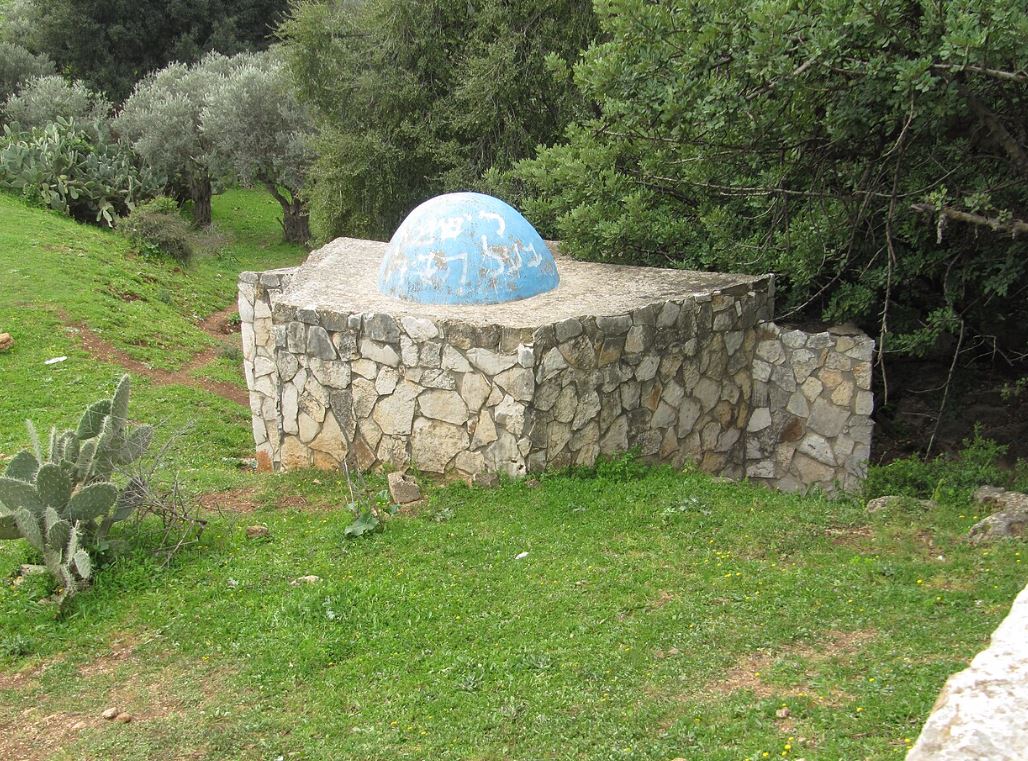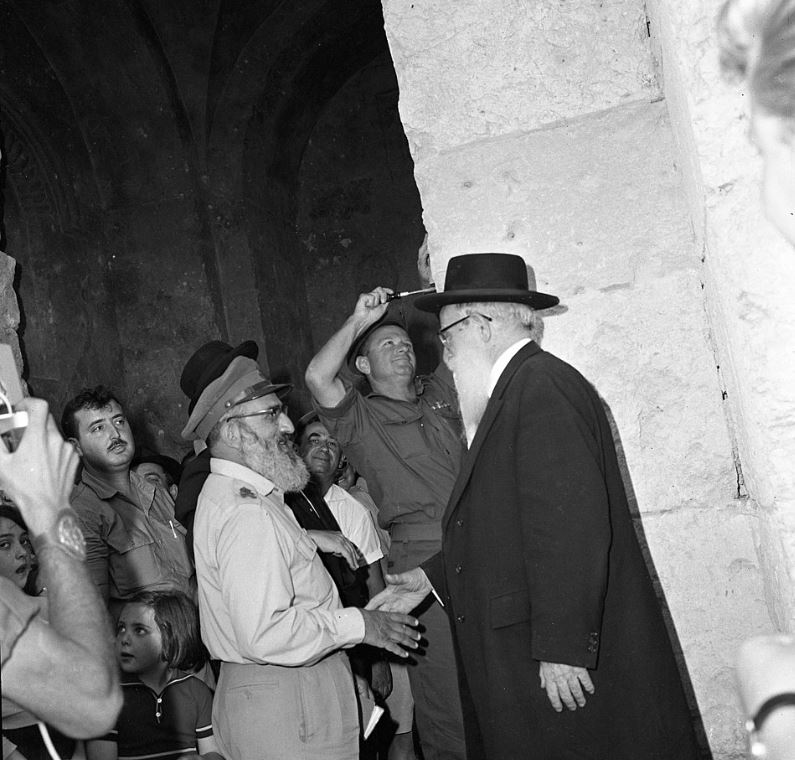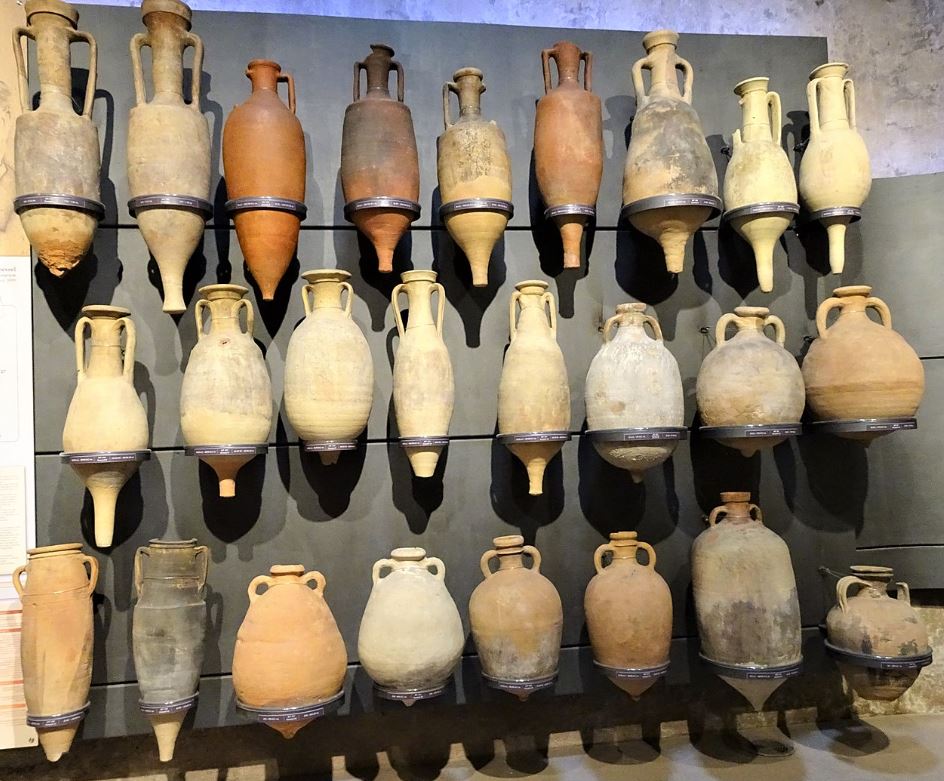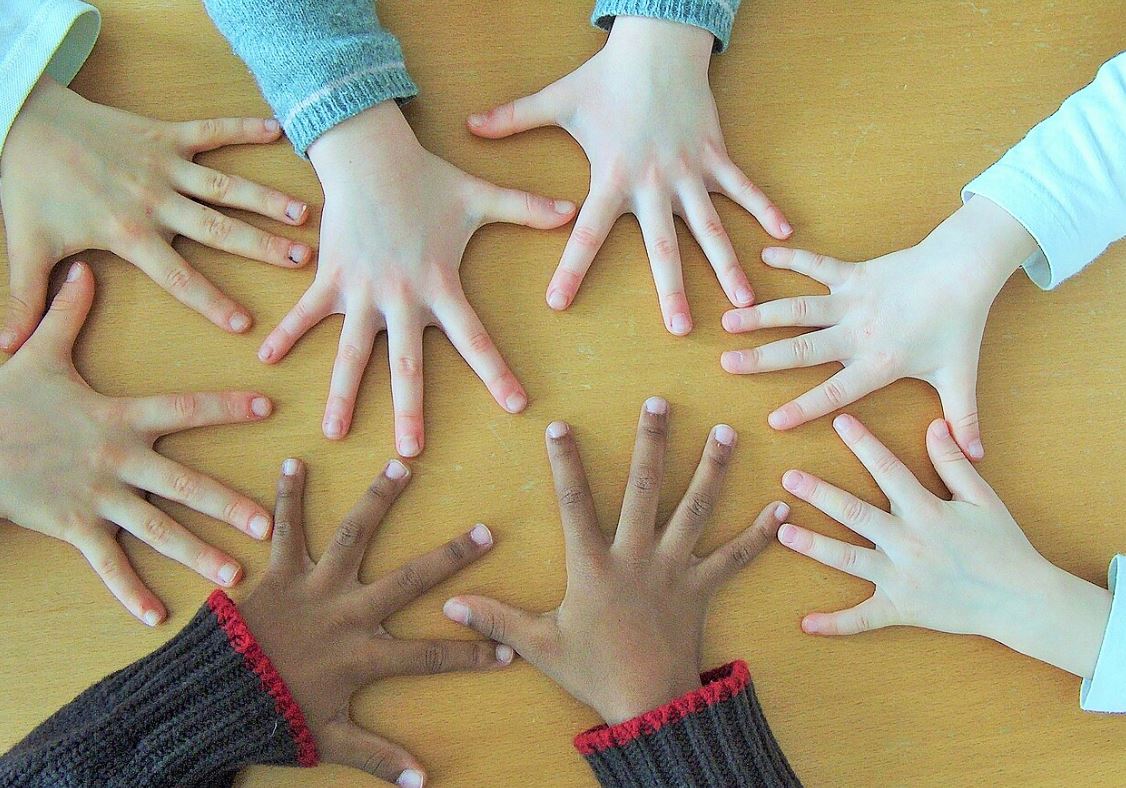Alexander the Great: youngest and most inspired conqueror in the world, Greek hero, philosopher king and . . . star of the Gemara? Believe it or not, Rabbinic literature has quite a few stories about Alexander, a series of which appear on our daf. In the tales here, various nations come before the great king and try to convince him to give them property or money from the Jews. The Jewish champion is an obscure kohen named Geviha ben Pesisa. Here is one of the stories:
“The Sages taught in Megillat Ta’anit: On the twenty-fourth day in Nisan [it is a joyous day], since the usurpers [dimusana’ei] were expelled from Judea and Jerusalem. When the people of Afrikiya came to judgment with the Jewish people before the emperor, Alexander of Macedon, they said to him: The land of Canaan is ours. . . Geviha ben Pesisa said to the Sages: Give me permission and I will go and deliberate with them before Alexander of Macedon.” (Sanhedrin 91a)
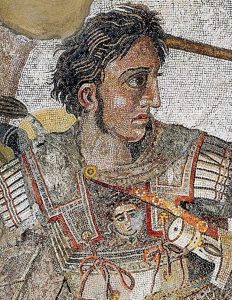
Detail of a mosaic depicting Alexander in battle, Pompeii first century BCE
Berthold Werner, Public domain, via Wikimedia Commons
In Megillat Taanit, a compilation of archaic holidays, we have a variation on our stories (and also on the date, the twenty-fifth of Sivan instead of the twenty-fourth of Nisan). Megillat Taanit also tells us about a different holiday connected to Alexander, this one in Tevet. Here the Jews best the Samaritans and destroy their Temple on Mount Gerizim. A version of this story appears in Yoma:
“The twenty-fifth of Tevet is known as the day of Mount Gerizim . . on that day that the Samaritans [kutim] requested the House of our Lord from Alexander the Macedonian in order to destroy it, and he gave it to them, People came and informed the High Priest, Shimon HaTzaddik. What did he do? He donned the priestly vestments and wrapped himself in the priestly vestments. And the nobles of the Jewish People were with him, with torches of fire in their hands. And all that night, these approached from this side, and those, [the armies of Alexander and the Samaritans], approached from that side, until dawn. . . When he reached Antipatris, the sun shone and the two camps met each other. When Alexander saw Shimon HaTzaddik, he descended from his chariot and bowed before him. His escorts said to him: an important king such as you bows to this Jew? He said to them: the image of this man’s face is victorious before me on my battlefields,” (Yoma 69a)
Who was Alexander and why does he play such an outsized role in Rabbinic literature? The son of King Philip of Macedon, Alexander burst out of the western Mediterranean to conquer most of the known world in ten years. He was a young man who was crowned at age twenty and was dead by the time he was thirty-three. In that short time span he changed the world, defeating the mighty Persian empire and ruling from the edge of India to North Africa:
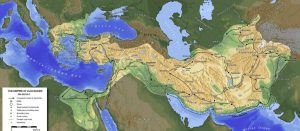
Generic Mapping Tools, CC BY-SA 3.0 <http://creativecommons.org/licenses/by-sa/3.0/>, via Wikimedia Commons
But Alexander was much more than a warrior and a statesman. He came to symbolize Greek culture and its spread throughout the world. He was a student of Aristotle and Greek language and philosophy were integral to his world view. His encouragement of the Greek way of life in his conquered cities led to the rapid spread of Hellenism throughout the Near East and was the precursor to the story of Chanukah.
For the rabbis, Alexander was many things. He was a stand-in for Greeks and Greek wisdom, a field of knowledge that Rabbinic culture was ambivalent about (see here) He was also a prototypical powerful Gentile ruler, someone who would be the obvious adjudicator in the series of stories here in Sanhedrin. Alexander also seems to have supported to Jews against their bitter enemies the Samaritans, even if the details in the Yoma story may be slightly incorrect.
Alexander’s life fascinated many and much has been written about him. The most famous ancient work of literature about Alexander’s life was called the Alexander Romance and some of our stories bear more than a passing resemblance to it. Roman writers like Quintus Rufus and Plutarch also told Alexander tales. Plutarch writes about an encounter that Alexander had with Indian ascetics called the Gymnosophists. The cycle of tales in Tamid where Alexander questions the Elders of the Negev is very similar to Plutarch’s dialogue, but our Elders use the Bible to prove their points. They also add a strong moral element to the tale, as we shall see.
What do Jewish versions of the Alexander legends tell us? The most historical stories are the ones about the Samaritans. We have multiple variations, both Jewish and non-Jewish, on Alexander’s persecution of the Samaritans and his favoring of the Jews. One of the most intriguing archaeological discoveries in recent years is a synagogue mosaic from Hukok, near Tiberias, that depicts a Greek general and his army facing off against a group of priests. Is this a depiction of Alexander’s encounter with Shimon haTzadik?
The Talmudic stories about Alexander are also a reflection of what the Rabbis thought of the Greeks and Greek wisdom. On the one hand, they see the Greeks as having a great thirst for knowledge. See how Alexander questions the Elders about astronomy and ethics:
“Alexander of Macedon asked the Elders of the Negev about ten matters. He said to them: Is the distance from the heavens to the earth further, or is the distance from east to west further? . . . He said to them: Were the heavens created first or was the earth . . .He said to them: What must a man do and he will live?” (Tamid 31b -32a)
However, the Rabbis also understood that an unending desire for knowledge and (for Alexander) its corollary, power, will lead to corruption and cruelty. They knew that greed can never be sated and so they ended the cycle of questions with a “gift” that Alexander received from Heaven:
“They gave him one eyeball. He brought it and he weighed all the gold and silver that he had against the eyeball, and it did not balance. He said to the Sages: What is this? [Why does this eyeball outweigh everything?] They said: It is the eyeball of flesh and blood, which is not satisfied” (Tamid 32a)
Greed and power can also lead to terrible cruelty as the Rabbis emphasize in another Alexander tale. Here the great leader of Western civilization watches a “savage” king, from beyond the mountains of darkness, as he fairly and justly makes peace between two men with a monetary dispute. Alexander comments that if it were up to him, he would have had the men killed and taken the treasure for himself. The king chastises him:
“He said to him: Do you have rainfall [in your land]? He said to him: Yes. He said to him: Do you have sunshine? He said to him: Yes. He said to him: Do you have flocks of sheep and goats? He said to him: Yes. He said to him; May the spirit of that man [you, Alexander] depart from his body. It is not for your sake that rain falls on you, and it is not for your sake that the sun shines for you. It is, rather, for the sake of the animals” (Bereshit Rabba 33:1)
Despite the Rabbis’ ambivalence towards Alexander, he is generally considered a positive figure. The name Alexander was given to Jewish boys for centuries. The medieval history book Yosiphon gives an interesting explanation as to why that is. After retelling the story of Alexander and Shimon haTzaddik, Yosiphon adds that Shimon brought Alexander to the Temple in Jerusalem. Alexander magnanimously wanted to gift the Jews with a bust of himself to place in the Temple. Shimon steers him away from this idea and encourages him to donate the money to the poor. In addition, Shimon suggests that all kohanim who have baby boys that year should name them Alexander, and so it was.
Do you know any Jewish Alexanders?
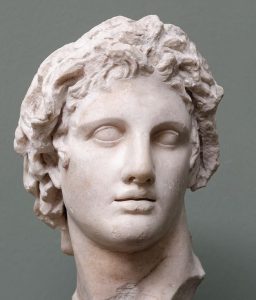
Bust of Alexander from the third century BCE
Ny Carlsberg Glyptotek, Public domain, via Wikimedia Commons




